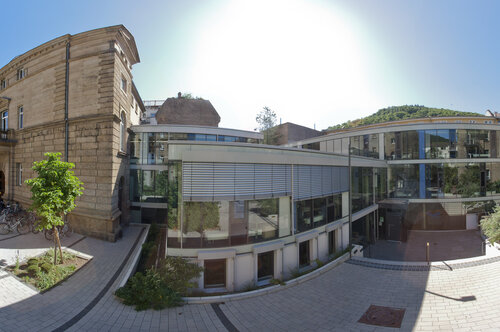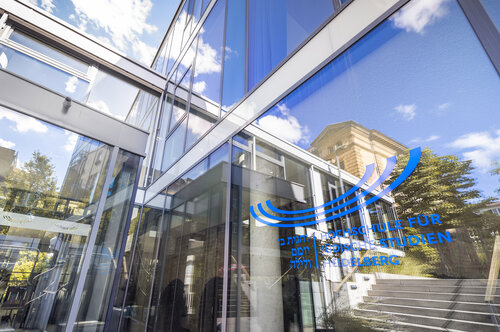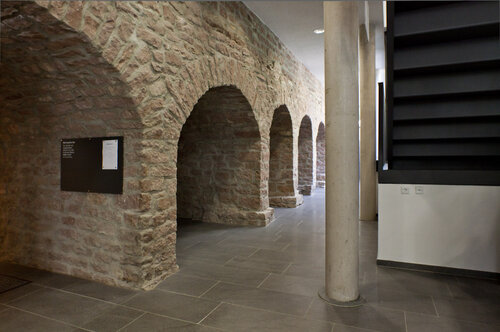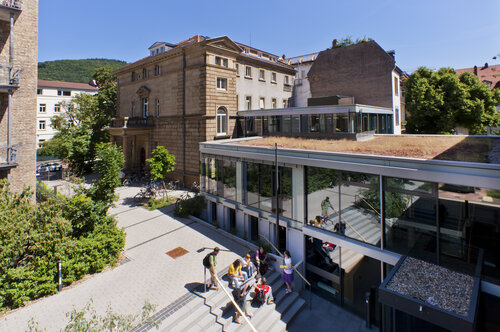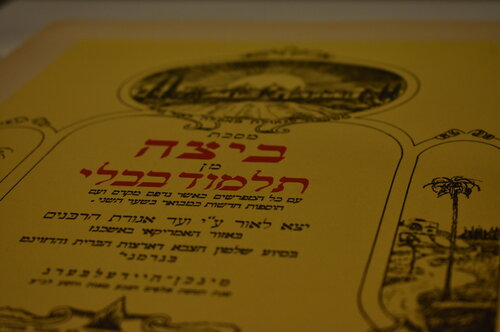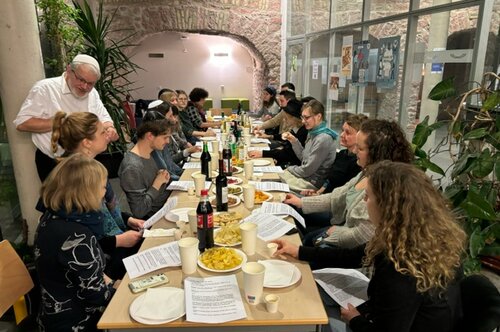M.A. Interreligious Studies
The most important Facts in brief
-
Degree M. A. Interreligious Studies
-
Start of the Studies Summer and Winter Semester
-
Language Requirement German / English
-
Course Language German / English
-
Further Study Locations Universities of Heidelberg, Basel and Strasbourg
-
Standard Period of Study 4 Semester
-
Cooperation with Universities of Heidelberg, Basel and Strasbourg
-
Deadline for Applications 15.6.
Aim of the Degree Program
Interreligious studies address the increased social and academic demand for interreligious competence and offer a comprehensive education in questions of determining relationships and understanding between different religions. They are at the intersection of humanities, social sciences and cultural studies.
The Heidelberg University of Jewish Studies is involved in the international M.A. Interreligious Studies program with its range of courses.
Unless specific admission requirements (e.g. language skills) apply, the courses offered by the Hochschule für Jüdische Studien are generally freely creditable in the compulsory elective area of the interdisciplinary module; depending on the topic, individual courses can also be assigned to other modules of the degree program.
The crediting of courses is indicated in the current Annotated Course Catalog of the Heidelberg University of Jewish Studies.
For information on the courses offered by the Heidelberg University of Jewish Studies, please contact our Student Advisory Service: studienberatung(at)hfjs.eu
The degree program is administered by Heidelberg University.
The Master of Arts in Interreligious Studies responds to the increased social and academic demand for interreligious competence and offers a comprehensive education in questions of defining relationships and understanding between different religions. The Master's program serves the purpose of reflecting on the possibilities of understanding with members of other religions about their respective convictions from a theological perspective. This interreligious dialog should also be placed in a cultural, social and political context. Interreligious dialog is also subject to historical changes and is a decisive factor in the identity formation of religious communities
Students learn to interpret theological texts and topics from different religions in a scientifically sound manner. In the Master's degree course in Interreligious Studies, students acquire theological, historical, social and cultural scientific as well as critical-hermeneutic skills and are enabled to deepen their knowledge of individual topics of religious theology in the examination of beliefs and forms of practice of other religious traditions.
The Master's in Interreligious Studies is a joint Master's program with the Universities of Basel and Strasbourg and the Hochschule für jüdische Studien in Heidelberg. Students who begin their studies in Heidelberg must acquire at least 30 ECTS credits here, as well as at least 30 credits from one or more of the partner institutions. The Master's thesis is submitted to Heidelberg University at the end of the program.
The program consists of five modules for which the partner institutions are jointly responsible. In addition, there is a compulsory academic term paper and an interdisciplinary module in which courses with a focus on the humanities, cultural studies, linguistics or social sciences or research-relevant language courses can be selected.
The common modules are:
- Module 1: Interreligious Relations: Foundations and History
- Module 2: Fundamental Texts: Exegetical and Hermeneutical Perspectives
- Module 3: Religious beliefs in the past and present
- Module 4: Religion, society and state
- Module 5: Philosophy of Religion and Religious Studies
Courses from these modules taken at one of the partner institutions will be credited in Heidelberg. Typically, the second or third semester is spent at one of the partner institutions, while the fourth and final semester is primarily devoted to writing the Master's thesis.
Upon successful completion, graduates also receive a Diploma Supplement in addition to the Master's certificate from Heidelberg University, which explains the joint study program and shows the logos of all cooperation partners.
The admission requirement for the Master's degree course in Interreligious Studies is a degree in a theological or religious studies Bachelor's degree course for which a standard period of study of at least three academic years has been specified OR a degree in courses with essentially the same content at a German or foreign university with a standard period of study of at least three academic years OR a Bachelor's degree in linguistics, cultural studies or social sciences recognized as equivalent by the admissions committee with a standard period of study of at least three academic years.
The Master's degree program in Interreligious Studies has restricted admission. Interested German students require a certificate of admission from the Faculty of Theology in order to enrol. To do so, please send an informal letter stating your desired field of study, your BA certificate and a transcript of records to the Examination Office of the Faculty of Theology.
Prospective international students must apply in writing to the International Office at Heidelberg University. You can find more information on the application procedure on the information page Application profile. The application deadline is June 15 for the winter semester and November 15 for the summer semester.






